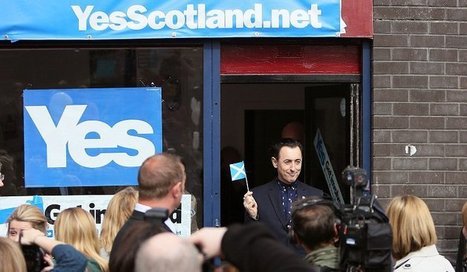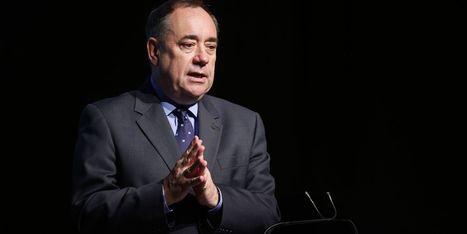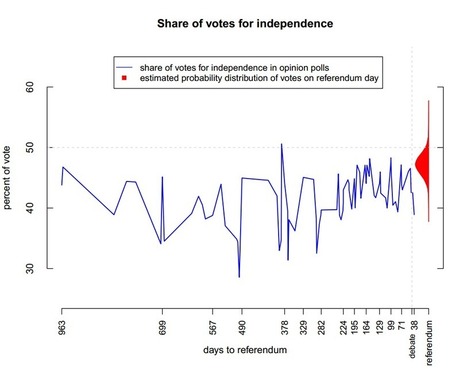 Your new post is loading...
 Your new post is loading...
Work needs to be done to ensure the UK’s increasing ageing population can still contribute to society. Sarah Johnson reports on Guardian seminar
Now that the majority of Scotland has voted no to independence, the country and its business community must decide where their future lies.
David Bell on the success of the bookies in predicting the indyref results. This post was originally published on ScotFES.
Former PM says he will return to frontline politics unless first minister withdraws 'nationalist deception' over privatisation
With numbers of people aged 75 and over expected to double by 2040, society needs to adapt quickly, writes Jane Falkingham
As the Yes campaign gathers momentum, defence sources say that there is no contingency plan for Alex Salmond's promise to remove Trident
With just ten days to go until Scotland’s crucial vote on independence the contest appears to be on a knife edge. A YouGov poll for the Sunday Times at the weekend put Yes Scotland ahead of the Better
If Scotland were an independent member of the EU, it would be forced to re-think its fee arrangements
A leading adviser to the Scottish Government has insisted that there will be "no incentive" for the UK Government not to sign up to a currency union if next month's referendum results in a vote for independence. Professor Andrew Hughes-Hall...
In a post originally published by the Washington Post's The Monkey Cage blog, Arkadiusz Wiśniowski examines the polling data on the independence referendum.
Vote intentions unaffected by Games
THE campaign to save the United Kingdom from the threat of independence yesterday received a timely warning from a leading academic.
Via Centre on Constitutional Change
Professor David Bell publishes research showing Scots have more disposable income than their peers in almost all other small European countries.
|
THE referendum is over, and now the focus is on what further devolved powers will be offered to Scotland following the work being led by Lord Smith of Kelvin; and how much further change (possibly including change to the public finance funding formula) will follow in the wake of proposals for wider constitutional change across the UK, to emerge from the commission established under William Haig.
David Bell and David Eiser explore fiscal power issues and the proposals that have already been tabled. This blog originally appeared on the Scottish Fiscal and Economic Studies (ScotFES) website
The foundation of Sir Tom Hunter, who built a fortune in athletic footwear, published a book dedicated to the independence referendum in Scotland.
Ikke alt bliver svækket med alderen. Forskning viser, at nogle af vores evner faktisk bliver bedre i løbet af livet.
The number of jobs in Scotland has become another bone of contention in the referendum campaign. Let’s look at the facts. The number of jobs in the Scottish economy has increased by 13.5 per cent s...
THREE of the big chains have warned that we will end up paying more for our food because the UK will no longer share the cost of distributing our goods.
New research shows that some of our skills actually improve as we age.
The latest forecast suggests that the pro-independence campaign in Scotland is fighting an uphill battle.
On the 18th of September people living in Scotland will vote on whether the nation should become an independent country.
Scots will have to make increased pension contributions and pay higher taxes if they vote “yes”, an expert has claimed
SCOTS have more cash in their pockets than many citizens of the Scandinavian countries whose living standards the SNP wants to emulate, research has found.
Referendum 'too close to call'
|




 Your new post is loading...
Your new post is loading...































